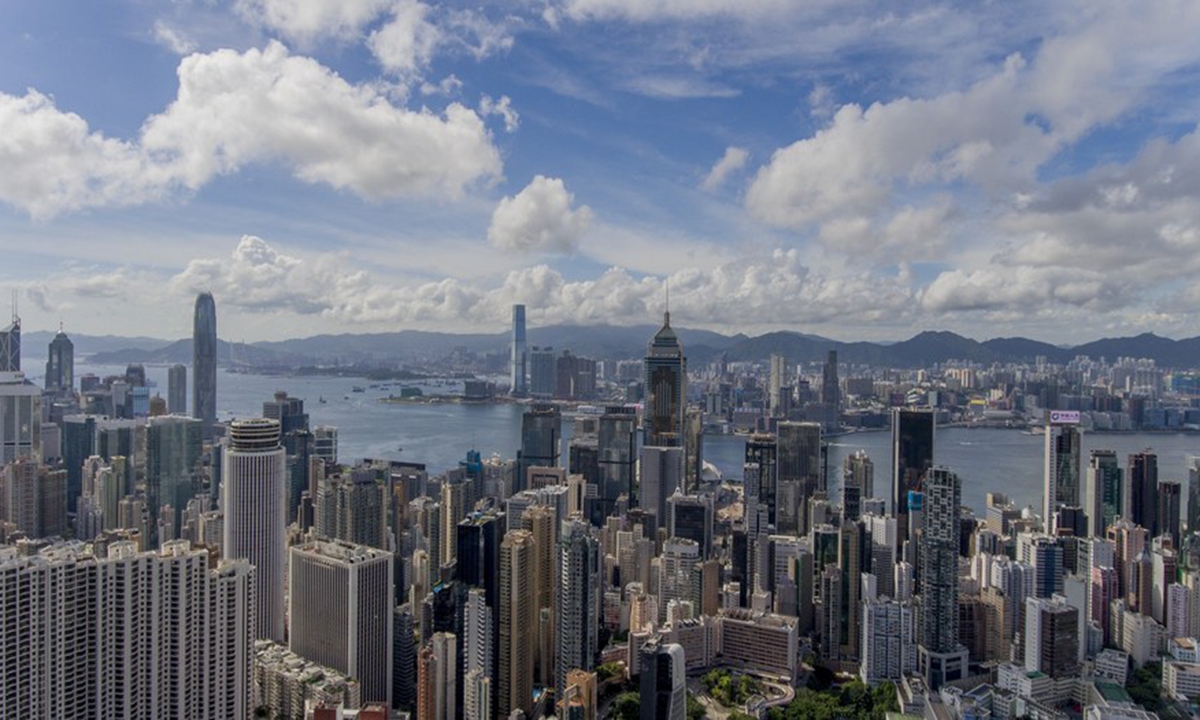HK refutes Pompeo's claim over business environment

Aerial photo taken on July 16, 2020 shows the Wan Chai of China's Hong Kong. (Xinhua/Lui Siu Wai)
Hong Kong Chief Executive Carrie Lam refuted US State Secretary Mike Pompeo's criticism of a deterioration in the business climate in Hong Kong in recent years, especially after the implementation of the national security law for the special administrative region, saying "this is one of the best times to come."
"Nothing has changed in recent years, except that we no longer see those chaotic scenes that have been disturbing and disrupting business for a very long time since June last year," Lam said in an interview at The Wall Street Journal's CEO Council summit on Tuesday, the newspaper reported.
Pompeo said in a separate interview that Hong Kong "is no longer anything but another Chinese Communist-run city." "The world, the business community should treat it as such," he said.
This is the latest in a series of US moves to undermine the stability of the Hong Kong Special Administrative Region (HKSAR) and contain China's development by interfering into China's internal affairs, an expert noted.
"The US' discriminatory treatment of the HKSAR in business and political affairs is a malignant tumor of the colonial mentality of the 21st century," Cao Heping, an economist at Peking University, told the Global Times on Wednesday.
Security legislation is necessary for the stability of a society, Cao said. "Since the US has its own national security law, why can't it tolerate that the HKSAR has the same kind of law?" he said, noting that Pompeo is fanning nationalism and fake freedom.
After the US Commerce Department announced plans to revoke its preferential treatment for the HKSAR in June, the US in August imposed sanctions on 11 Chinese, claiming they undermined the city's autonomy, and on Monday the Trump administration blacklisted 14 vice chairs of the Standing Committee of the National People's Congress, China's top lawmaking body.
The US' outrageous actions caused widespread criticism, especially in the business community. The American Chamber of Commerce (AmCham) in Hong Kong in July expressed regret for the US' revocation of the special trade status of the city, saying the move will hurt American businesses in Hong Kong.
Attracted by Hong Kong's low taxation policy, proximity to the Chinese mainland, skilled workforce and infrastructure, there are more than 1,300 US companies, including 726 regional operations, and nearly 85,000 American residents work and live in Hong Kong.
A survey conducted by the AmCham in Hong Kong at that time showed that 48 percent of its members had no plans to leave Hong Kong after the introduction of the national security law, though some members planned to leave the city for reasons unrelated to the security legislation.
"Along with the advancement of digital technology innovations, the system of laws has been more transparent than ever in Hong Kong and in the Chinese mainland. Therefore, there is no sense in Pompeo's accusation of a so-called deteriorating business environment in Hong Kong," Cao said, pointing out that Pompeo is the biggest obstacle to both China's and the US' development.
The HKSAR took the top place in the ranking of the world's freest economy, according to the annual report of Canada-based research and education organization Fraser Institute released in September.